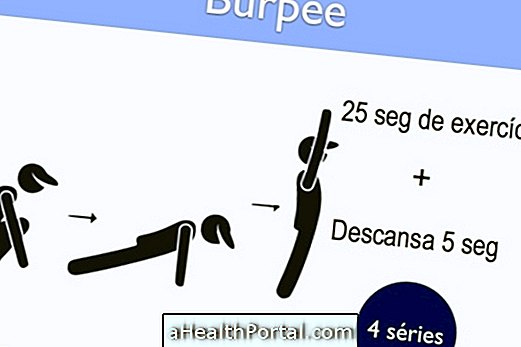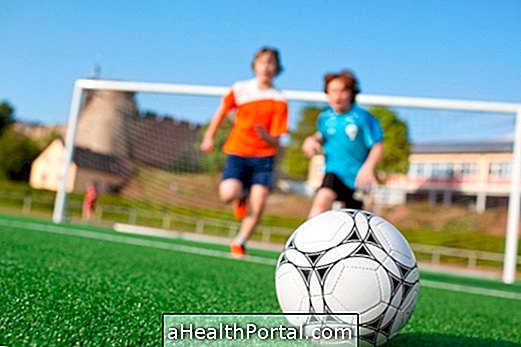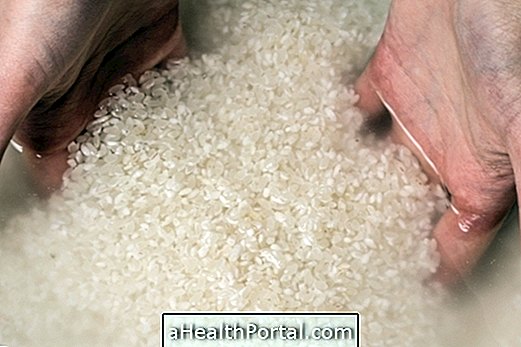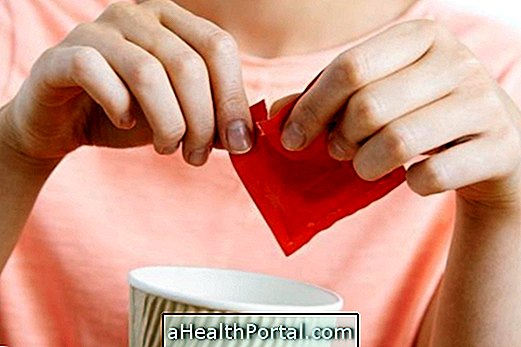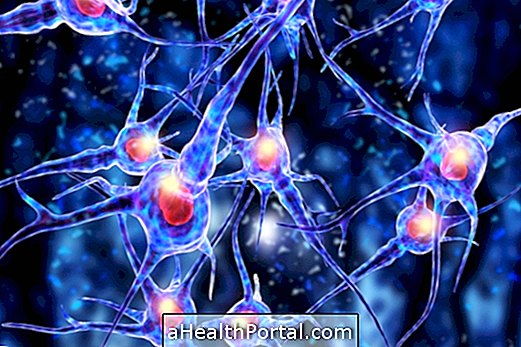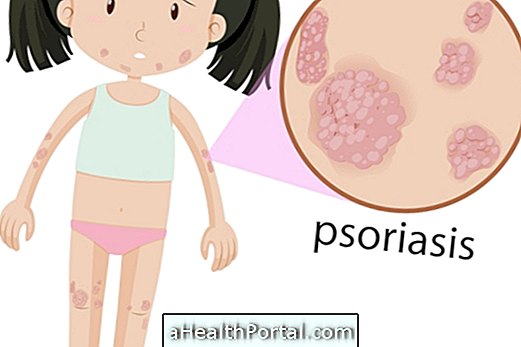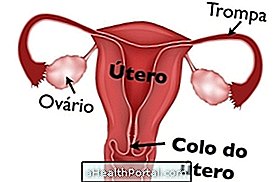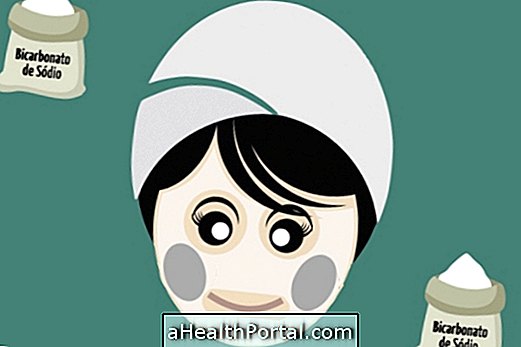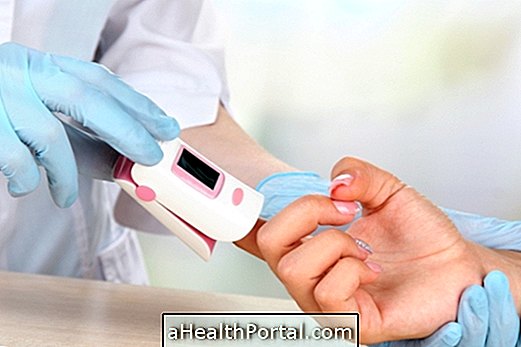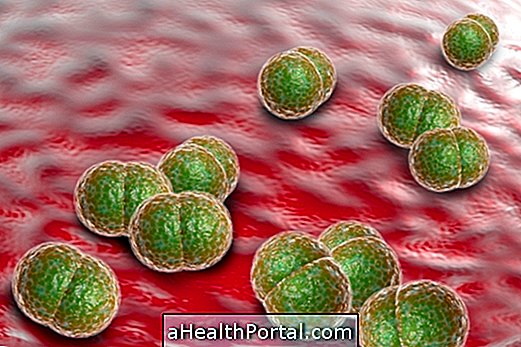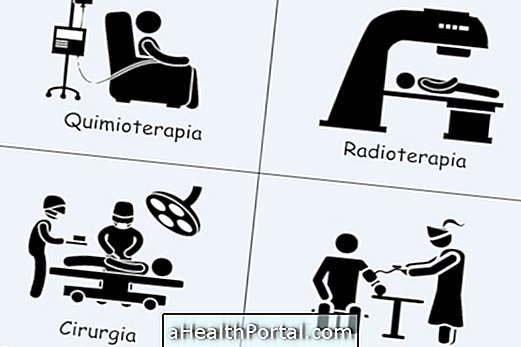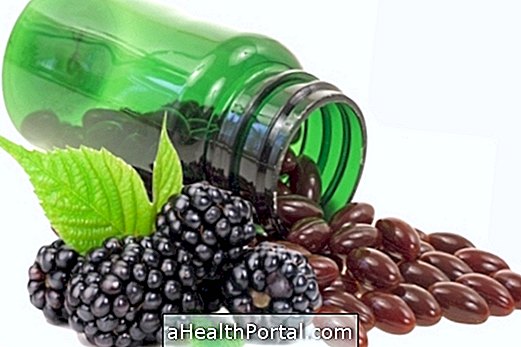Drinking caffeine before training improves performance because it has a stimulating effect on the brain, increasing the willingness and dedication to train. In addition, it increases muscle strength and fat burning, and decreases fatigue in post workout, which is the feeling of tiredness and muscle exhaustion after practicing physical activity.
Thus, caffeine helps in both aerobic and anaerobic training, and can also bring benefits when consumed after training, as it facilitates the transport of glucose from the blood to the muscles, which helps in muscle recovery.
The recommended maximum value of this supplement is about 6 mg per pound of weight, which is equivalent to about 400mg or 4 cups of strong coffee. Its use should be done in moderation as it can cause addiction and some side effects such as irritation and insomnia.

Benefits of caffeine for training
The benefits of pre-workout coffee are:
- It improves attention and concentration because it acts as a brain stimulant;
- Increases agility and mood, by reducing the sensation of fatigue;
- Increases strength, muscle contraction and endurance;
- Improves breathing by stimulating the dilation of the airways;
- Facilitates the burning of fat in the muscles;
- It diminishes, because it has a thermogenic effect, which accelerates the metabolism and the burning of fat, besides decreasing the appetite.
The effect of increased coffee fat burning promotes weight loss and increased muscle mass, as well as improving the sensation of fatigue in the muscle after physical activity.
Is caffeine better before or after training?
Caffeine should preferably be consumed in the pre-workout to improve physical performance during both aerobic and hypertrophic physical activity. As it is absorbed quickly through the gastrointestinal tract and reaches a peak blood concentration in about 15 to 45 minutes, ideally it should be consumed about 30 minutes to 1 hour before the workout.
However, it can also be ingested during the day, because its action lasts for 3 to 8 hours in the body, reaching effects for up to 12 hours, which varies according to the presentation formula.
Already in the post-workout, caffeine can be used by athletes seeking muscle mass gain, as it helps transport sugars into muscle and muscle recovery for the next workout, but ideally it should be talked to with the nutritionist to assess whether this option is more beneficial than pre-workout use in each case.

Recommended amount of caffeine
The amount of caffeine recommended for best performance during training is 2 to 6 mg per kilogram of weight, but its use should be started at low doses and gradually increase according to the tolerance of each person.
The maximum dose for a 70 kg person, for example, is 420mg or 4-5 roasted coffees, and exceeding this dose is dangerous as it can cause serious side effects such as shaking, palpitation and dizziness. Knowing more about coffee and caffeinated drinks can cause overdose.
Caffeine is also present in other foods, such as soft drinks and chocolates. Check the table below for the amount of caffeine in some foods:
| Product | Amount of caffeine (mg) |
| Roasted coffee (150 ml) | 85 |
| Instant coffee (150 ml) | 60 |
| Decaffeinated coffee (150 ml) | 3 |
| Tea made with leaves (150 ml) | 30 |
| Instant tea (150 ml) | 20 |
| Milk chocolate (29 g) | 6 |
| Bitter chocolate (29 g) | 20 |
| Chocolate (180 ml) | 4 |
| Soda Cola (180 ml) |
18 |
Caffeine can also be consumed in the form of supplements, such as capsules or in the form of anhydrous caffeine, or methylxanthine, which is its purified form powder, which is more concentrated and can have more potent effects. These supplements can be purchased at manipulation pharmacies or sports products. See where to buy and how to use caffeine in capsules.
In addition to caffeine, homemade energy drinks are also a great option to improve your workout performance, giving you more energy to train. Here's how to prepare a delicious energy drink with honey and lemon to drink during the workout, watching this video from our nutritionist:

Who should not consume caffeine
The use of caffeine or excess coffee is not recommended for children, pregnant women, breastfeeding women, and for people with high blood pressure, arrhythmia, heart disease or stomach ulcers.
It should also be avoided by people suffering from insomnia, anxiety, migraine, tinnitus and labyrinthitis as it can worsen the symptoms.
In addition, people using MAOI-like antidepressants such as phenelzine, pargyline, seleginine, and tranylcypromine, for example, should avoid high doses of caffeine as there may be an association of effects that cause high blood pressure and rapid heartbeat.




